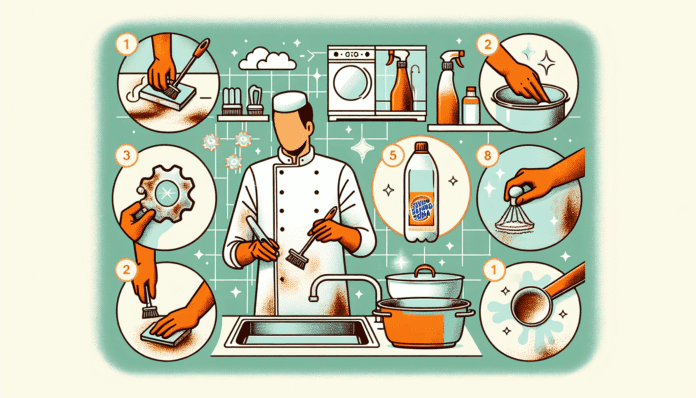Rust in the kitchen presents itself as a daily challenge that can compromise both the appearance and the functionality of utensils and appliances. The constant exposure to humidity is usually the main cause of these unwanted wear. However, there are effective and accessible methods to combat it and prevent its return.
Homemade products are among the most practical solutions. White vinegar stands out as an effective remedy thanks to its acidity, which acts by breaking down rust. To use it, simply soak a cloth in vinegar and rub the affected areas. If the rust persists, a mixture of baking soda and vinegar can enhance the cleaning. When applying this paste to the oxidized surface, it is recommended to let it act for a few minutes before rinsing and drying thoroughly.
Another alternative is the combination of lemon and salt, whose chemical reaction helps to disintegrate the oxide. The process is simple: lemon is squeezed onto the damaged area, it is covered with salt and after a few hours of rest, it is rubbed with a soft cloth, culminating with a rinse in water.
For those who prefer more robust solutions, the market offers products specifically designed to remove rust. It is crucial to follow the manufacturer's instructions, as these products often contain potent chemical components that require safe and responsible use, preferably in well-ventilated areas and with protective gloves.
In addition to removing rust, it is essential to implement preventive measures. Keeping surfaces dry, applying a layer of oil to iron or steel utensils, and storing them in dry areas, are essential steps to prevent future problems.
Restoring the kitchen elements to their original condition doesn't have to be a monumental task. With simple ingredients and a methodical approach, it is possible to preserve both the appearance and the functionality of the utensils. Adopting these care measures not only guarantees a more pleasant environment, but also prolongs the durability of the most precious objects in the home.



